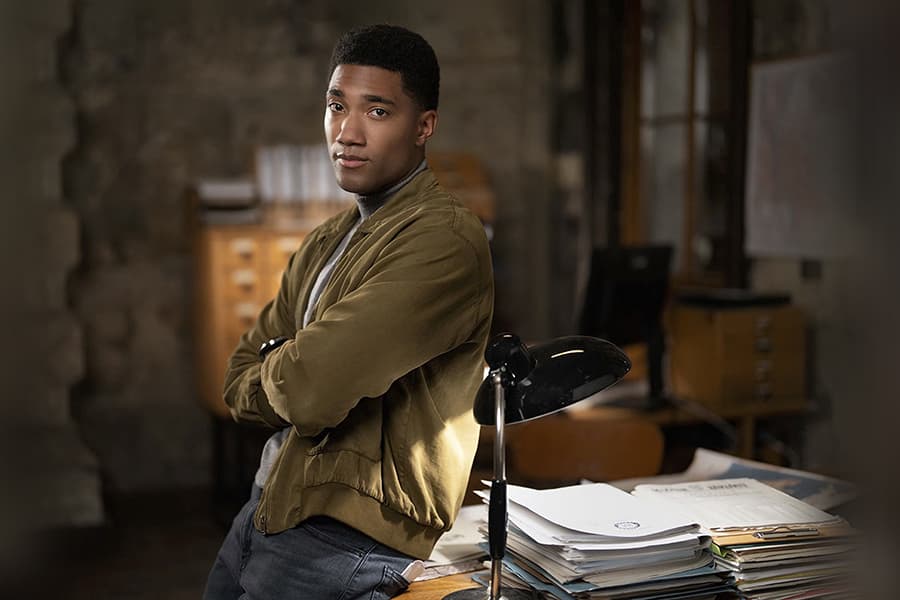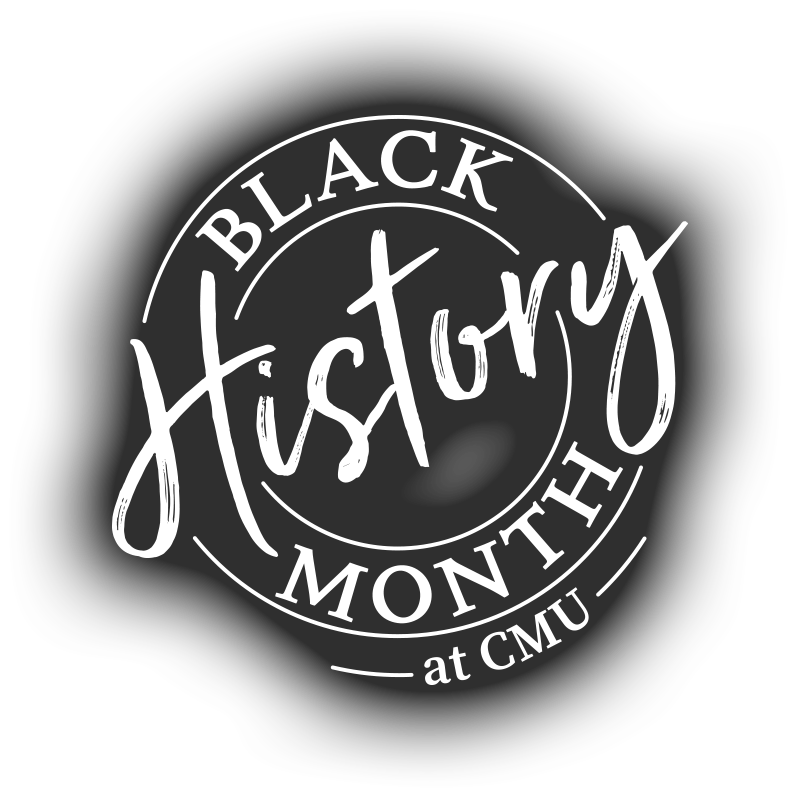
The Rise of Carter Redwood
CMU alumnus stars on the stage and screen — and makes sure others get there, too
By Amanda Hartle
30 days. A single month.
That’s all it took for Carnegie Mellon University alumnus Carter Redwood to go from sitting in the audience watching his first play to a professional acting role with Pittsburgh Playwrights Theater Company.
“I took to the stage like a fish to water,” Carter says. “I fully immersed myself in it, and ever since then, there’s been no turning back.”
He was only age 10 when he played the role of Andre in “The Water Runs Clear,” and now nearly two decades into his career, he’s achieved a goal he set early on.
Carter is currently starring in a franchise series in a full-time, regular role — as FBI Special Agent Andre Raines on CBS’s “FBI: International.”
“It’s a cool, full-circle moment for me,” says Carter, who graduated from the College of Fine Arts with a drama degree in 2014. “It feels a little surreal to be in this position, but I do see this as the first big fish in what I hope to be a really long and fruitful career — not just a flash in the pan.”
“Carnegie Mellon prepared me for this, for a career. They help you build this toolbox with an arsenal of resources you can apply to any role whenever you need it.”
“You’re always on the go and have almost no time. You’re just going from being physical in movement class to training your voice in vocal to acting class where you get more emotional and technical to stage combat to classical texts with Shakespeare and Greek. It is intense. I know for a fact that those long days then prepared me for the long days now.”
Finding His Way
In addition to his weekly role as a federal agent who uses his accounting background to solve crimes, viewers can catch Carter in HBO’s “Winning Time: The Rise of the Lakers Dynasty.”
He plays Kelvin, who falls in love with the future Mrs. Magic Johnson just before Magic Johnson is recruited into the NBA. Taking on the role required a different playbook and training with a basketball coordinator who has worked with NBA superstars like Stephen Curry and LeBron James.
“We had practice every day for two hours and that helped us to build camaraderie alongside our basketball skills,” Carter says. “Working on the on-court techniques also helped me shape and develop the character by finding him in a physical space first before diving into the mental space of the role.”
The physicality and grind of the role wasn’t new to him though his “goal” role on “FBI: International” could test the limits of any actor with its 12- to 14-hour days on set, sometimes six days a week.
“It’s great work, if you can get it,” he says. “But it’s an intense gig, and the flipside is that it’s not easy. It takes a certain amount of energy and focus to be able to show up every day and give my all. So, right now, I'm just focused on this role and this project, and I'm just exercising being fully present.”
And no matter the role — from television appearances on “The Long Road Home,” “Blue Bloods,” “The Good Wife” and “Orange is the New Black” to off-Broadway and regional theaters credits — he leans on a lifetime of experience honing his craft and his “always learning and always growing” mentality.
Rehearsing for Success
Carter considered the theater his second home growing up, a venue to soak up information like how to run a lightboard or soundboard, change scenery and glean advice from seasoned veterans like his mentor Mark Clayton Southers.
He became the “go-to kid” when anyone in the Pittsburgh arts scene needed someone under age 18 for a role and participated in nearly every youth arts competition, mastering everything from Shakespeare to August Wilson.
Carter soon set his sights on New York City, but his mom had another idea.
“I was a small kid with big dreams,” Carter says. “But my mom was like ‘Would you let a doctor operate on you that had no formal training? Why not go get formal training and the credentials? You might not need it, but why not have it.’”
So he signed up for CMU’s Pre-College Program following his junior year of high school, next door to his home in Pittsburgh’s Hill District neighborhood.
Carter says that summer opened his eyes to the possibilities of a CMU education.
“They were people from all over the world talking about how this was their top school,” Carter says. “I remember being taken aback because even though it was in my backyard, I never really considered CMU for drama. I only knew it for engineering and computer science.”
Once on campus as a student, he absorbed every lesson regardless of how rigorous and relentless his schedule.
“You’re always on the go and have almost no time,” Carter says. “You’re just going from being physical in movement class to training your voice in vocal to acting class where you get more emotional and technical to stage combat to classical texts with Shakespeare and Greek.”
“It is intense. I know for a fact that those long days then prepared me for the long days now.”
“It’s important to pass on as much as you can to the next generation. I look at it like a baton, and granted I'm still running my race, I'm nowhere done. But I do feel strongly that while on the way up, if you can bring other people up with you, why not?”
Bringing Others Up
For Carter, part of those long days revolve around paying forward the time and energy others put into him.
“I wouldn't be where I am without the people who have mentored and inspired me and their knowledge and experiences,” he says. “It’s important to pass on as much as you can to the next generation. I look at it like a baton, and granted I'm still running my race, I'm nowhere done. But I do feel strongly that while on the way up, if you can bring other people up with you, why not?”
So he does.
Returning to his high school to teach master classes, working with theater companies around New York City and helping young writers to bring their stories to life during events like FreshPlay Festival.
And with each kid, he’s adding another chapter to the rich history of cultural heritage and arts icons in his Hill District neighborhood like August Wilson.
Wilson knew Carter’s grandfather and name-dropped him in the 10th play of his century cycle “Radio Golf.”
“The character Sterling says: Mr. Redwood taught me that. He told me, ‘You ain't dumb, you're just faster than everybody else.’ I was so fast, it made me look slow. I was waiting for them to catch up.”
“I don't think it's a mistake that things have aligned the way they have with me also being a performer, a storyteller, a creative and an artist like others who have come before me. Everything I’m doing now, just feels like it's a part of my legacy, my opportunity to continue the story.”

